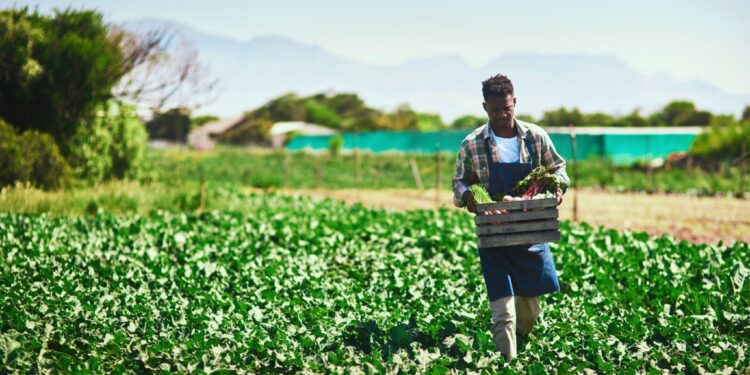It is incredible that the many prospects associated with this era of tremendous agricultural expansion still seem remote, disconnected from the actual conditions on the ground, or unachievable. While reports of the rising youth unemployment rate in Africa continue to circulate, agriculture is often cited as a simple answer. Unexpectedly, this is due to the unfavorable impression of agriculture among many young people nowadays. Farmers are viewed as having poor social standing in our culture, and as a result, students are severely discouraged from even showing an interest in becoming farmers. Instead, they are encouraged to pursue careers in law, medicine, and engineering from an early age.
On the contrary, up to 60% of Africa’s workforce is employed in agriculture, according to the Africa Economic Outlook Report 2013, which was released by the African Development Bank, the Organization for Economic Cooperation and Development, and the United Nations Development Program. Despite this, low productivity means that the industry only contributes 25% of the continent’s GDP. Several articles, agricultural policy meetings, and events have mentioned issues with unstable electricity for storing agricultural produce, poor road infrastructure for the movement of goods across and within regions, lack of access to farming technologies and implementation to combat drudgery and low production outputs, and last but not least, pest and disease outbreaks as factors that continue to affect agriculture and make it difficult to fully utilize the available resources. We could go on and on about these issues, yet they persist even now. In my opinion, what is more, critical is the need for a paradigm shift in how we view agriculture in all spheres of society, including our communities, schools, the government, and therefore the whole government.
One of the past Presidents of the United States, John Adams, once said, “Every problem is an opportunity in disguise,” and this has been seen by several youths across Africa who are taking the bold move to proffer solutions to these challenges, thereby changing the narrative, improving lives, creating employment, and cultivating prosperity on the African continent through agriculture. Some examples of some of these youth across some parts of Africa and what they are doing are discussed below.
Aina Tolulope
Aina Tolulope, who has over eight years of experience in the agricultural industry, oversees a group of professionals with expertise in consulting, brand development, and agriculture. She is the founder of Agrolearn, an online community to empower Africa’s future agrarian leaders through online learning. She is attempting to address one of the major issues the world has today—the creation of jobs, particularly in Africa—by utilizing agriculture and technology to address the issues associated with unemployment. The unique selling point of this platform’s model is that learners, in addition to being given the necessary knowledge, also have the chance to obtain internship opportunities, allowing them to put their newfound knowledge into practice while solidifying it through real-world application. If they perform well in their internships, they may even be able to find gainful employment afterward.
Samson Ogbole (The Wizard Farmer)
Samson Ogbole, a scientist who has spent over 12 years farming, has established more than 30 farms in Nigeria, Ghana, Kenya, South Africa, Australia, and Dubai. He employs technology as an aid to agriculture as the team leads at Eupepsia Place Limited (Soilless Farm Lab). He cultivates plants without the need for soil, using an irrigation system powered by artificial intelligence to properly monitor plants for maximum yield and predictable food production. He will conduct a work, learn, and earn project for the next two years. In 2023, he hopes to train at least 4000 young people through the Enterprise for Youths in Agriculture (EYiA). To establish sustainable food systems, raise wages, and generate jobs, this approach aids in the training of youths, the establishment of farm clusters, the registration of businesses, and the provision of business support.
Rotimi Olawale Opeyemi
With a mission to ensure the future of human nutrition, Rotimi founded JR Farms Africa. He is a well-known young leader in the agricultural industry in Africa and a renowned agribusinessman. Through his programs, he has mentored hundreds of young Africans in Botswana, Cameroon, the Democratic Republic of the Congo, Niger, Nigeria, the Ivory Coast, Rwanda, Ghana, Senegal, South Africa, and other countries in Africa. For instance, in one of his business models, 4000 coffee producers were given access to the roasting, packaging, and shipping of completed goods both inside and outside of the continent through cooperation between his company and the government of Rwanda.
Like Wayne Dyer once said, “If you change the way you look at things, the things you look at change.” If, as a continent, we don’t start to transform the very mentality of our children, youths, parents, and citizens who eventually become government officials, agricultural prospects will continue to appear unattainable. The agricultural value chain includes more than just working on farms; some individuals would make money from selling farm products, others would build greenhouses and sell the materials needed, others would process these products, and so on. Opportunities abound, but we can only recognize them after we adopt a different perspective on agriculture. The world would then be astounded by how far we would advance.








